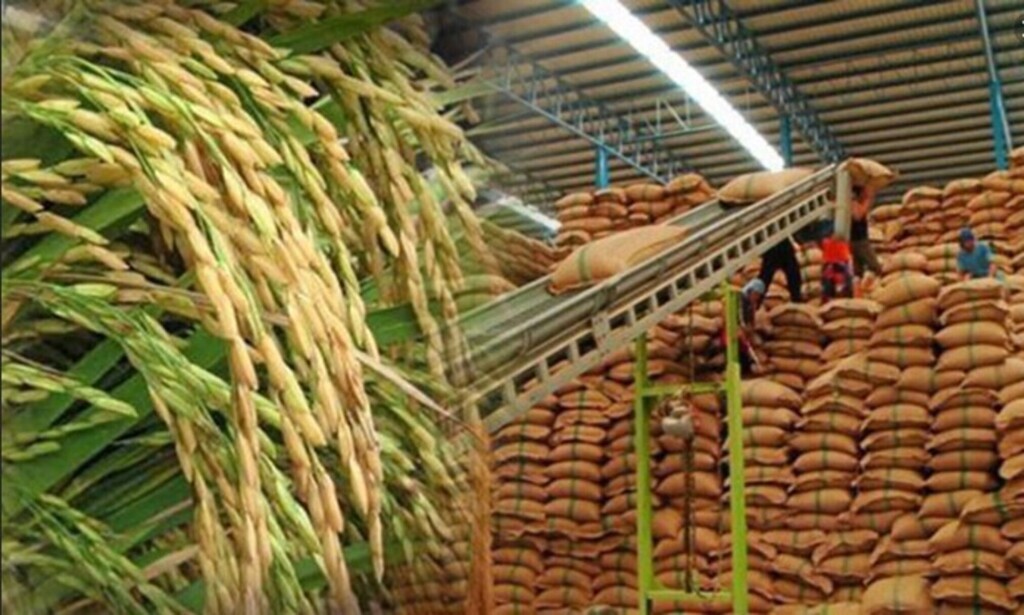Business
Thailand’s Rice Exports Hit a 4-Year High as Global Food Security Concerns Rise

Thailand, the world’s second largest rice exporter, is on track to ship the most in four years, as importing countries increase purchases to replenish stockpiles and keep food inflation under control.
According to Chookiat Ophaswongse, honorary president of the Thai Rice Exporters Association, exports will likely increase to 8 million tonnes this year as a weak currency boosts competitiveness and countries such as China look to rebuild inventories before the Lunar New Year holidays. He believes that shipments will remain stable through next year.
Prices for staple foods such as wheat and cooking oils have reached new highs this year as a result of Russia’s invasion of Ukraine in February, which has reduced Black Sea supplies. This sparked a wave of food protectionism as governments restricted exports to keep prices stable.
Top rice shipper India was one of the first to do so, paving the way for Thailand.
Rice is a staple for half of the world, and while wheat reached new highs in March, rice remained relatively stable, helping to limit food inflation in Asia. In order to keep food costs under control, people in some countries, such as Indonesia, may have switched from expensive wheat to cheaper rice.
This year, benchmark rice in Asia reached a high of $468 per tonne in May and a low of $410 in July. According to data from the Thai Rice Exporters Association, these prices compare to more than $1,000 per tonne during the 2008 food crisis.
Rice Being Stockpiled Due to Global food security concerns
According to Mr Chookiat, the country benefited this year from India’s decision to limit shipments as well as Iraq’s return to the market. Thailand’s strong rice exports reflected global food security concerns as well as lower output in top growers such as India, which accounts for nearly 40% of international trade.
“Countries have been importing more rice in order to stockpile and keep domestic prices low,” Mr Chookiat explained. “This year’s lower prices and the weak baht boosted our competitiveness,” he said.
Estimated exports of 8 million tonnes this year are higher than the target of 7.5 million tonnes, representing a 20% increase over 2021. According to Mr Chookiat, Iraq has been the largest single buyer this year, accounting for 1.5 million tonnes. Due to quality concerns, the Middle Eastern country discontinued Thai rice imports in 2013 and only resumed them last year.
Indonesia is one of the countries that is purchasing foreign rice in order to increase stockpiles and contain inflation. For the first time since 2018, state-owned Bulog is importing grain, with 200,000 tons coming from Thailand, Vietnam, Pakistan, and Myanmar.
The US Department of Agriculture expects Indonesian demand to help boost Thai exports to 8.5 million tonnes by 2023, and has raised its forecast for this year to 7.9 million tonnes due to strong demand from Iraq.
Iraqi purchases should continue well into next year, and shipments to Indonesia are likely to increase, according to Mr Chookiat. Because of favorable weather during this year’s main harvest and robust off-season production next year, Thailand should have plenty of supply, he said.
jasmine rice, sticky rice, pilaf rice, basmati rice, cauliflower rice
Thailand Holds 140 Year-Old Buffalo Races Kicking Off Rice Season
Thailand Holds 140 Year-Old Buffalo Races Kicking Off Rice Season

















![Play Online Blackjack In Australia [2024]: Top 10 Online Australian Blackjack Sites 16 Play Online Blackjack in Australia [2024]: Top 10 Online Australian Blackjack Sites](https://www.chiangraitimes.com/wp-content/uploads/2024/03/word-image-303235-1-80x80.jpeg)












